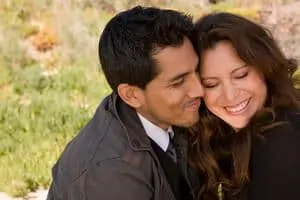
I often ask my couple clients a rather unusual question that is usually met with reticence and a suspicious look. I ask them what two plus two is. If I get no response I volunteer the correct answer of four. Then I ask where they learned this and at this point they tend to respond; school. I acknowledge their answer and quickly ask them where they learned how to have a relationship. This is when the fun begins. Hopefully you can also see the connection here in the questioning. At best we learn to have a relationship from observation of our environment and this can be anything from, parents/caregivers, stories, T.V., movies or maybe even cartoons! Yet in many other areas of life and some arguably less important we are specifically taught how to learn these other various subjects. What about one of the most important aspects of our existence, relationships!
Learning how to have a happy, healthy, supportive and productive relationship is important and it is time to let go of the old notion that you should instinctively know how to have one. Also it’s important to address the often complaint of “a relationship shouldn’t have to be work!” I do apologize but most things in life do require work. It’s surprising how most people will work hard for someone else (a job) and possibly suffer and toil and then want to do no work in a relationship with a person they “love” and that possibly “love’s” them too. Couple’s with certain skill sets work at their relationship, but that relationship is often not reported as “work” and tends to be the more fulfilling type. Are you ready to learn how to have a relationship?

Having a committed relationship in today’s world is all the more challenging and demanding. Dema nds on each individual have increased as have career and social expectations. The divorce rate is still around 50% (51% last I looked), and less people are getting married, as well as later in life. How do you navigate these challenges? Educating yourself with knowledge, awareness, insight, tools and empathy is a hopeful beginning. Rather than view a troubled relationship as needing “help” perhaps it simply needs some educational information. Learning is often most fun when it benefits you in a real world experience and a relationship surely counts for that.
This is intended as a very brief encouragement to enroll in your relationship university. Here are a few non-therapy specific notes that may be incorporated for most people to help improve some aspects of their relationship. If you are going to have a BIG talk, don’t start first thing in the morning, before bed, or when you are hungry. If you recognize you are reacting in the same way, consider something along the opposite of that. If you are really struggling and need help, get it! Thank your partner for all they (actually) do. Prioritize time for your relationship in a way that is at least as equal to any other demand or need of your time. A relationship requires two people to be mutually responsible for its well being.